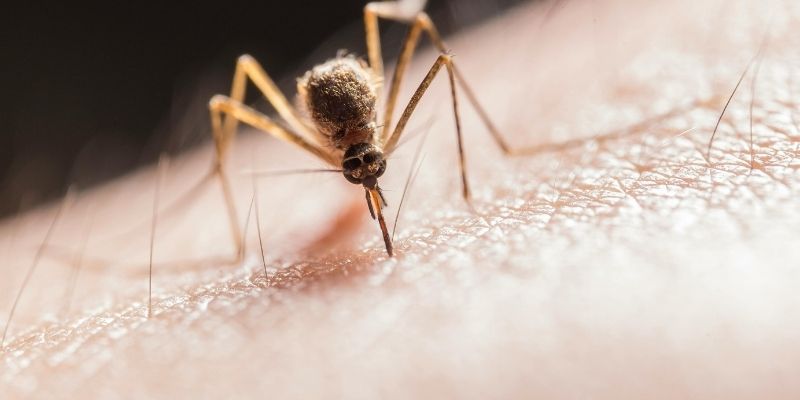Signs and Symptoms of Dengue Fever You Should Know
Dengue fever is an illness transmitted by mosquitoes, specifically through the bite of an infected Aedes mosquito. It is commonly found in tropical and subtropical areas and can lead to symptoms that range from mild to severe. Recognizing the signs early is crucial to prevent complications and ensure timely treatment. Dengue can range from a mild fever to a life-threatening condition, making awareness vital for public health.

Early Signs and Symptoms of Dengue Fever
The onset of dengue fever symptoms happens in 4 to 10 days following insect bites from infected mosquitoes. A sudden high fever above 102°F (39°C) is one of the first clear indicators of dengue fever and continues for various days. The signs include high fever, intense eye pain, and deep bone pain, which some call "breakbone fever" because of its extreme intensity. People who develop dengue suffer from intense exhaustion together with body weakness as well as limitations in performing their daily routines. A few days after initial fever onset, patients often develop a distinctive rash while experiencing frequent nausea along with vomiting. Mild nosebleeds and gum bleeding in some patients can signal serious complications. High fever and intense body pain persist throughout dengue fever, so they serve as indicators to differentiate it from other viral infections. However, patients sometimes confuse this illness with the flu. Early medical consultations lead to better treatment outcomes for symptom control.
Severe Symptoms and Complications of Dengue Fever
While mild dengue fever resolves independently, severe cases can lead to serious health risks. Dengue hemorrhagic fever and dengue shock syndrome are the most dangerous complications. In severe cases, patients may experience internal bleeding, low platelet count, difficulty breathing, and organ failure. Warning signs of severe dengue include persistent vomiting, severe abdominal pain, bleeding gums or nose, and blood in the urine or stool. Immediate medical attention is crucial to manage complications and prevent fatalities.
How Dengue Fever is Diagnosed
Medical dengue fever diagnosis happens through clinical evaluation methods and laboratory examination procedures. After observing symptoms and tracking patients' Journey to areas where dengue fever exists, doctors will consider dengue a possibility. Tests of blood specimens verify dengue infection diagnosis by detecting either the dengue virus or antigenic components that form antibodies with this virus. A complete blood count (CBC) checks for platelet levels and blood cell counts because both values become very low in critical dengue conditions. Early diagnostic tests enable healthcare providers to deliver prompt treatment and minimize the development of dangerous complications.

Treatment of Dengue Fever
No existing antiviral medications exist to treat dengue fever; therefore, healthcare professionals focus on symptom management and protecting against complications. Doctor-recommended methods for treating dengue fever include sufficient sleep time, hydration, and mild pain medications such as acetaminophen to control the patient's temperature and body discomfort. Avoid taking NSAIDs, including ibuprofen and aspirin, because these drugs can raise the risk of internal bleeding. Patients with minor dengue symptoms must check for worsened conditions before consulting medical staff. When dengue becomes severe enough, medical personnel may need to hospitalize the patient by giving IV fluids, which prevent dehydration while regulating blood pressure. Doctor teams monitor their patients for life-threatening dengue hemorrhagic fever or dengue shock syndrome symptoms. Patients requiring blood transfusions will receive them to restore their dangerously low platelet count. Medical evaluation at the earliest possible stage, along with appropriate supportive treatments, helps patients recover better while lowering their risk for complications.
Prevention Methods to Reduce Dengue Risk
The prevention of dengue fever depends on reducing mosquito numbers while protecting people from mosquito bites. People can protect themselves from dengue infection by using insect repellent while wearing long sleeves and sleeping under mosquito nets. To prevent mosquito breeding, getting rid of standing water is essential. High-risk zones receive mosquito population control through fogging and larvicidal treatments, which communities and governments initiate. People living in certain regions can benefit from available dengue vaccines, which help prevent severe complications from dengue.
Recovering from Dengue Fever
The recovery process from dengue fever can take several weeks, depending on the severity of the infection. Mild cases resolve within one to two weeks, but severe cases require more extended recovery periods. Fatigue and weakness can persist for weeks after the fever subsides. It is essential to continue hydration, eat a nutrient-rich diet, and avoid strenuous activities during recovery. Regular follow-up checkups help monitor platelet levels and overall health improvement.
Dengue Fever and Public Health Concerns
The disease dengue fever continues to present a significant public health challenge worldwide. Multiple outbreaks hit tropical and subtropical regions, mostly during rainy seasons. Though primarily controlled by government health institutions and the World Health Organization, both execute awareness activities alongside vaccine distribution and mosquito control initiatives to stop dengue outbreaks. Places with high disease risk require visitors to boost their efforts against mosquito contact because they must stop the disease transmission.
Additional Information on Dengue Fever Recovery
After recovering from dengue fever, the body remains vulnerable to reinfection by a different strain of the dengue virus. Unlike some viral infections that provide lifelong immunity, dengue fever does not protect against future infections completely. Instead, a second infection with a different strain can be more severe, increasing the risk of dengue hemorrhagic fever or dengue shock syndrome. This makes preventive measures even more critical, especially for individuals living in or travelling to dengue-endemic areas. Ensuring a strong immune system through proper nutrition, hydration, and rest can aid in a quicker recovery and lower the risk of complications. Public awareness, community efforts, and proactive health measures remain vital in controlling the spread of dengue fever and minimizing its long-term impact on affected individuals and communities.
Conclusion
Medical intervention needs early detection of dengue fever because this mosquito-borne illness requires speedy, professional medical services. Knowledge of dengue fever signs and symptoms and information about treatment alternatives and dangerous outcomes support better prevention and lower fatality rates. Little hospitalization time is necessary for individuals with Dengue fever because preventive steps that involve terminal mosquito elimination and immunization effectively suppress disease spread. You need to consult medical experts immediately if you experience symptoms indicating dengue fever because it ensures your safe recovery process.











